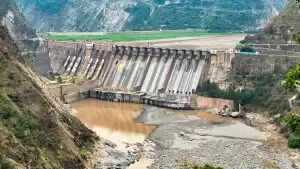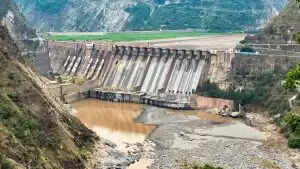
 Pakistan Urges India to Resume Treaty Operations
Pakistan Urges India to Resume Treaty Operations
On Monday, Pakistan urged India to restore the normal operations of the Indus Waters Treaty, which has been inactive since May. The call follows a recent ruling from the Permanent Court of Arbitration in The Hague, which affirmed that the treaty remains "valid and operational."
India has consistently dismissed the proceedings at the Permanent Court of Arbitration, particularly after Pakistan raised concerns regarding specific design aspects of two projects under the treaty's guidelines.
On Friday, India firmly rejected the court's ruling, asserting that it does not acknowledge the framework for dispute resolution proposed by Pakistan.
The Ministry of External Affairs (MEA) of India referred to the ruling as a "supplemental award" related to Pakistan's objections concerning the Kishenganga and Ratle hydropower initiatives.
Following the terror attack in Pahalgam on April 22, India implemented several punitive actions against Pakistan, including placing the Indus Waters Treaty of 1960 in "abeyance."
In a statement released on Monday, Pakistan's Foreign Office emphasized that the supplemental award issued by the Court of Arbitration on June 27 "vindicates Pakistan's stance that the Indus Waters Treaty remains valid and operational, and that India has no authority to take unilateral actions regarding it."
The statement further urged India to promptly resume the normal functioning of the treaty and to fulfill its obligations under it in a complete and faithful manner.
Additionally, Deputy Prime Minister and Foreign Minister Ishaq Dar remarked that the court's ruling confirmed the full validity of the Indus Waters Treaty.
"Pakistan welcomes the Court of Arbitration's Supplemental Award, which reaffirms its jurisdiction in the Kishenganga-Ratle case. The ruling confirms that the Indus Waters Treaty (IWT) remains fully valid. India cannot unilaterally suspend it. Nations are judged by their commitment to international agreements. The IWT must be honored in both its letter and spirit," he stated in a post on X on Monday.